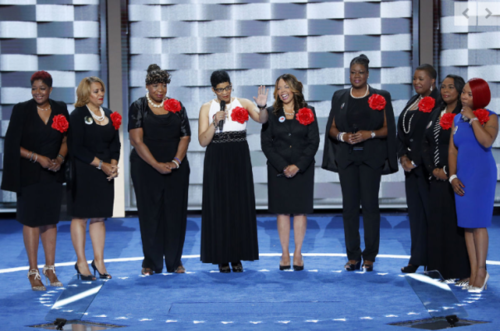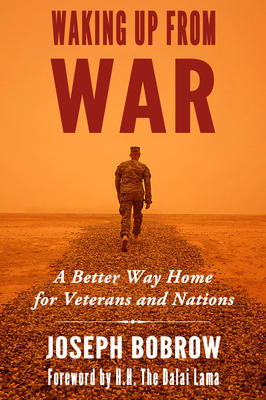Part 3
Safety. Belonging. Unconditional acceptance, without judgment. Attentive listening. Speaking from the heart. Mutual respect.
These are the ingredients that make bearing the unbearable possible. They are the elements of a healing environment in which service members, veterans, their families and their providers transform the traumas of war. Those suffering from post-traumatic stress want nothing more than conditions in which they can allow the traumas to resurface and be held and transformed. We have learned that at the heart of such an environment is community; robust, vigorous, and supple. Accepting and loving, a secular version of what church should be like. Community is the connective social tissue that restores, repairs and regenerates the ruptured connections trauma leaves in its wake within individuals, families, communities, organizations, policy makers and leaders. We've proven it.
Alas the VA and the DoD have been clueless when it comes to creating community and incorporating it into serving the mental health needs of service members and veterans. Mental health programs for our violence-torn cities too have commonly not gotten it. So we the people, the grassroots, must generate community in our fractured communities riven by mistrust and violence and mutual suspicion. Coming Home Project has demonstrated how.
What blinds us to the healing power of community? Is it our individualistic culture? How we seem to thrive on creating invidious divisions? Waiting for the silver bullet that will cure all ills? Blind faith in the medical establishment? All of the above? It's absence is at the root of many of our social and cultural problems. Trauma shatters lives and connections, like an IED blast. The erosion of community is the alpha and omega of trauma; its repair requires reestablishing those connections and the communitas they facilitate.
"To sit at a table... and bear the full force of our anguish."
Lucia McBath nailed it-- a key element for transforming overwhelming trauma. Lucia is one of the Mothers of the Movement group, made up of women who lost children to gun violence and police violence. She was speaking at the 2016 Democratic Convention about her son, Jordan Davis. It takes a village to fully bear collective trauma but in this case a leader, Hilary Clinton, was able to provide an element of healing for this group of grieving mothers.
Barack Obama has grown skilled, if weary, at providing such a compassionate, containing presence. His talk after the Newtown massacre is a case in point. His rendering there of Amazing Grace captured the unspeakable pain and seemed to turn it around, providing a vehicle for helping bind the wounds.
At Coming Home Project we have refined an environment that creates a reparative sense of community in which war trauma can be transformed. Our residential retreats are characterized by an element in short supply in some of our own cities today--safety. Along with physical and emotional safety, this environment provides an experience of belonging, feeling understood and unconditionally accepted, without judgment. I have seen it in action hundreds of times. War trauma is not cured or eliminated but transformed-- from a ghost into an ancestor, a memory that no longer haunts and disables.
I am drawing connections and suggesting that Coming Home retreats, developed and proven effective for the traumas of veterans and their families, can be easily adapted to improve mental and emotional health and wellbeing of our own communities where the environment is too often traumatizing like a war zone. Just as we adapted them to effectively serve burned out care providers.
There are of course differences, and I'll point out one. A veteran described how impatient and irate he would become with his fellow workers. They didn't get it. For him, the task at hand was a matter of life and death. Survival hung in the balance. Other vets in the retreat group echoed his experience. Eventually they saw that things being a matter of life and death and the underlying terror were carryovers from experiences in the war zone in Afghanistan or Iraq. The veterans' responses were real but no longer adaptive; their perceptions were no longer accurate. But changing response patterns hewn under the threat of death does not come easy.
For the residents of many neighborhoods across our country, the danger persists. Black children and adults fear for their lives on a daily basis. Their experience sadly bears similarities to that of residents in occupied territories such as Gaza (see Part 1 of this three part series)
Understand, I'm calling attention to the chronicity, despair, and lack of hope for change. I am not suggesting that the metaphor of occupation applies to U.S. cities. I am saying that when conditions of danger and threat continue, they are compounded and become chronic. Further, the injustice underlying some of these dangers does not seem to go away. Many veterans and family members have experienced and struggled with such injustice on the return home. Is resistance, engaging the struggle to change broken, unjust systems healthier or more adaptive than passivity? This is an important, complex subject for another blog.
Many returning service members and veterans struggle with a pervasive sense of threat and the resulting heightened vigilance. Listen as black Dallas physician Brian Williams poignantly describes his ever-present sense of fear in the presence of police, while affirming his support and resolve to care for them, a sign of profound maturity: "I want Dallas Police to see me, a black man, and understand that I support you, I will defend you, and I will care for you. That doesn't mean that I don't fear you. That doesn't mean that when you approach me I won't immediately have a visceral reaction and start worrying for my personal safety. But I'll control that as best I can and not let that impact how I deal with law enforcement."
I want you to see me as I am. Coming Home Project has demonstrated how powerfully effective is the native force of the beloved community, how reliable the compassionate, skillfully facilitated healing environments at providing the nutriments for stories and experiences never before revealed, including the despair of suicidal urges, at helping bind the wounds and enable a transformative process I call turning ghosts into ancestors.
The prevalence of threat, the absence of a reliable sense of safety, an overwhelming and unbearable emotional load, and feeling helpless to do anything about it can generate a wide range of painful, sometimes disabling emotional conditions. Although the best antidote is systemic and attitudinal change, we needn't wait to address the unseen injuries that accompany continuous violence, loss and related cumulative traumas.
If the skillfully employed force of the beloved community helps veterans of war, their families and children, and their providers to heal, it can similarly help survivors of violent loss in our neighborhoods. And law enforcement personnel whose stress levels are off the chart.


